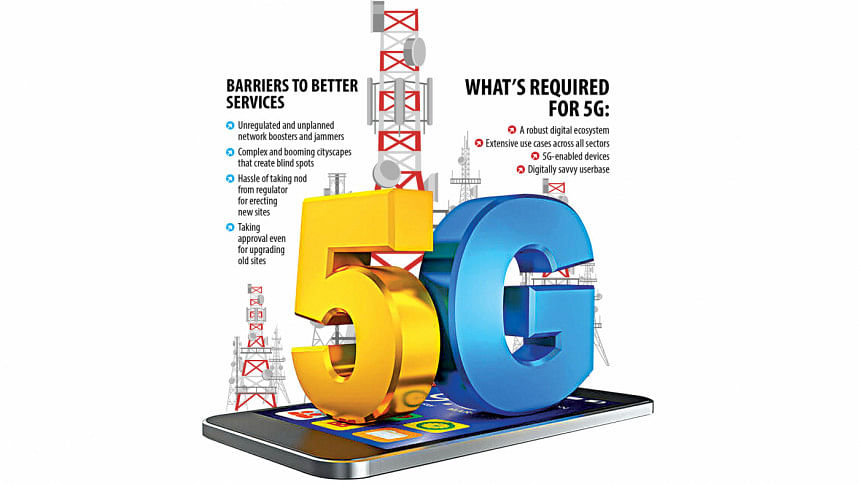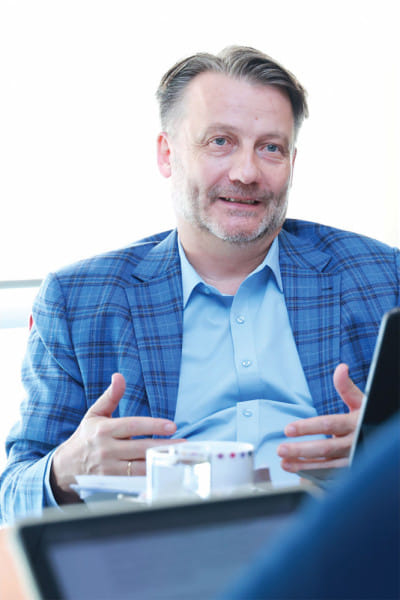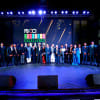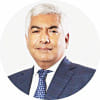5G will come when time is right

Jørgen C Arentz Rostrup, chairman of Grameenphone, and head of Telenor Asia, was recently in Dhaka to take part in the Bangladesh Business Summit. On the sidelines of the mega event, he spoke to The Daily Star about Telenor's vision in Asia and Bangladesh, the future of the digital economy and the roadmap to 5G, among other issues.
DS: What's your take on the Bangladesh Business Summit?
Rostrup: Since arriving in Bangladesh, I have met with and listened to a lot of knowledgeable people. I was intrigued by their vision and impressed by the digital strategy and vision of the prime minister for Bangladesh for the next 20 years. Our view is that we need to digitalise SMEs and the public sector as well. We need to focus on digital skill training. That's the only way you can actually move from vision to execution.
DS: Bangladesh's youth population is 45 per cent. How can the next generation of the workforce be globally competent?
Rostrup: Roughly two million people enter the job market every year. However, a small percentage receive formal skills training before they join the labour market. While the numbers are gradually improving, very few people have digital skills.
The government is talking about creating three million technology-related jobs by 2025. It is a great vision, but it is equally important to have a roadmap to get there.
We need to create a digital ecosystem that is beneficial, transparent, solid, efficiency-driven, and collaborative. We need to create room for the private sector to explore, innovate, and test things to increase engagement.

DS: Telenor has recently sold its unit in Myanmar. The same is happening in Pakistan. It is merging its operation in Malaysia and Thailand. This means that the footprint of Telenor is shrinking in Asia. Is this a pattern we might expect to see in other markets, including Bangladesh?
Rostrup: First of all, we are actually expanding the headquarters in Singapore. We are putting more resources in Asia from Telenor's point of view. Second, Myanmar was extremely unfortunate for us and it was in clear conflict with our values. Hence, we could not operate there anymore.
Then we have the mergers in South-East Asia. What we are doing is simply moving forward in the next journey. For example, in the first 10-15 years of our 25-year journey in Bangladesh, it was all about mass market growth. And Bangladesh saw a mass market growth. That was the first part of the journey. Now comes the second phase.
Currently, we are facing enormous opportunities and expectations of connectivity and services around it. And services extended from it will be decisive for a digital journey. So, we are now talking about needing to partner with others, and that is an acknowledgement in itself.
We are also partnering with other telecommunication companies, like a merger in Southeast Asia. It is all about new dynamics in the markets. Here in Bangladesh, I feel we have a size, which means that the merger is not the likely scenario for Bangladesh. We need to find other ways to partner with and be a good partner for digitalisation in Bangladesh.
DS: GP is now in its 26th year in Bangladesh. What more can we see from Telenor and GP?
Rostrup: 5G will come when the time is right, and we will do more on 4G. We will make sure that GP is as relevant and participates as much as possible in the things that are taking place.
We will invest where we are investing today. But also, we will continue modernising GP.
DS: The quality of service is a big issue in Bangladesh. What is GP doing to address it?
Rostrup: We are working hard on the service quality issue. But there are a lot of external factors for which we need help on the regulatory side. We need to be able to put bigger towers in place of smaller ones. We need help to stop some boosters and jammers that are installed and that are probably not regulated and approved.
DS: How ready is GP to launch 5G? How ready are we for 5G as a country?
Rostrup: I think GP and Telenor are technically ready to apply 5G. We are applying 5G in many markets globally as Telenor.
We are running pilots. We have a timeline to roll out the spectrum. But it must be mentioned that the digital ecosystem is not there yet. So, if you push for 5G too hard, it's not going to do anything good. It's going to absorb a lot of capital. So, this needs to be done carefully.
DS: Has Bangladesh been able to utilise the full benefit of 4G?
Rostrup: No. But it is not the nation's responsibility alone. It is everybody's responsibility. There are many similar markets, so it is more about how you take the next steps. There is nothing extensive that needs 5G in Bangladesh now. So, we should wait for the point where 5G becomes a necessity.
DS: What more can we see from Telenor in the coming days?
Rostrup: GP is one of the largest foreign investors in Bangladesh. We want to collaborate and be part of this journey with others because I think that is the nature of the next phase.
The government needs to continue to straighten out the regulatory side. A massive focus towards SMEs and public services and the building of digital skills are required. We also want to keep supporting through our connectivity, programmes and partnerships on the sustainability side.

 For all latest news, follow The Daily Star's Google News channel.
For all latest news, follow The Daily Star's Google News channel. 







Comments